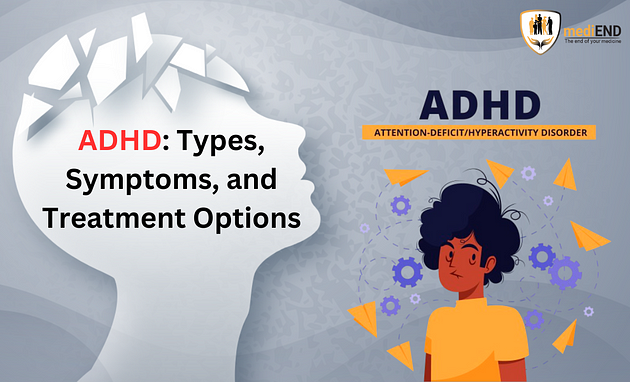ADHD: Types, Symptoms, and Treatment Options
Attention-Deficit/Hyperactivity Disorder (ADHD) is a neurodevelopmental disorder that affects individuals of all ages. It is characterized by difficulty in maintaining attention, hyperactivity, and impulsivity that can significantly impact daily functioning and relationships. According to the Centers for Disease Control and Prevention, ADHD affects approximately 6.1 million children and 4.4% of adults in the United States. With its prevalence and impact, understanding the different types of ADHD is crucial. This article aims to educate readers on the various types, symptoms, and treatment options for ADHD. By increasing awareness and understanding, individuals with ADHD can receive the appropriate support and management for better quality of life. Whether you are a parent, teacher, or someone with ADHD, this article will provide valuable insights to help navigate this disorder.
What is ADHD?
Attention deficit hyperactivity disorder (ADHD) is a neurodevelopmental disorder that affects both children and adults. It is characterized by difficulty in focusing, impulsivity, and hyperactivity. There are three types of ADHD: inattentive, hyperactive/impulsive, and combined. Each type presents with its own set of symptoms and challenges.
ADHD can have a significant impact on a person’s daily functioning and relationships. It can affect academic and professional success, as well as social and emotional well-being. The neurobiological basis of ADHD is still being researched, but it is believed to be a result of differences in brain structure and function.
Symptoms of ADHD
ADHD can present itself in various symptoms, which can be categorized into three types: inattentive, hyperactive/impulsive, and combined. These symptoms may differ in severity and frequency among individuals, but they all impact daily functioning and relationships. Children with ADHD may exhibit difficulty paying attention, forgetfulness, and impulsivity, while adolescents and adults may struggle with disorganization, restlessness, and impulsivity. It is essential to recognize these symptoms and seek professional help for accurate diagnosis and treatment.
Diagnosis of ADHD
Diagnosing ADHD can be a complex process that involves gathering information from multiple sources. Healthcare professionals use the Diagnostic and Statistical Manual of Mental Disorders (DSM-5) criteria to diagnose ADHD. This includes a comprehensive evaluation of a person’s symptoms, medical history, and family history.
One of the challenges surrounding ADHD diagnosis is the potential for overdiagnosis and misdiagnosis. This can happen due to the overlap of symptoms between ADHD treatment and other conditions, as well as the subjective nature of some symptoms. It is important for individuals to seek a professional diagnosis to ensure accurate treatment.
Managing ADHD in Daily Life
ADHD can significantly impact an individual’s daily life, making it challenging to complete tasks and maintain relationships. However, there are ways to manage and cope with ADHD symptoms. One helpful strategy is to develop practical techniques for organization and time-management.
More info visit here:- ADHD: Types, Symptoms, and Treatment Options

Comments
Post a Comment